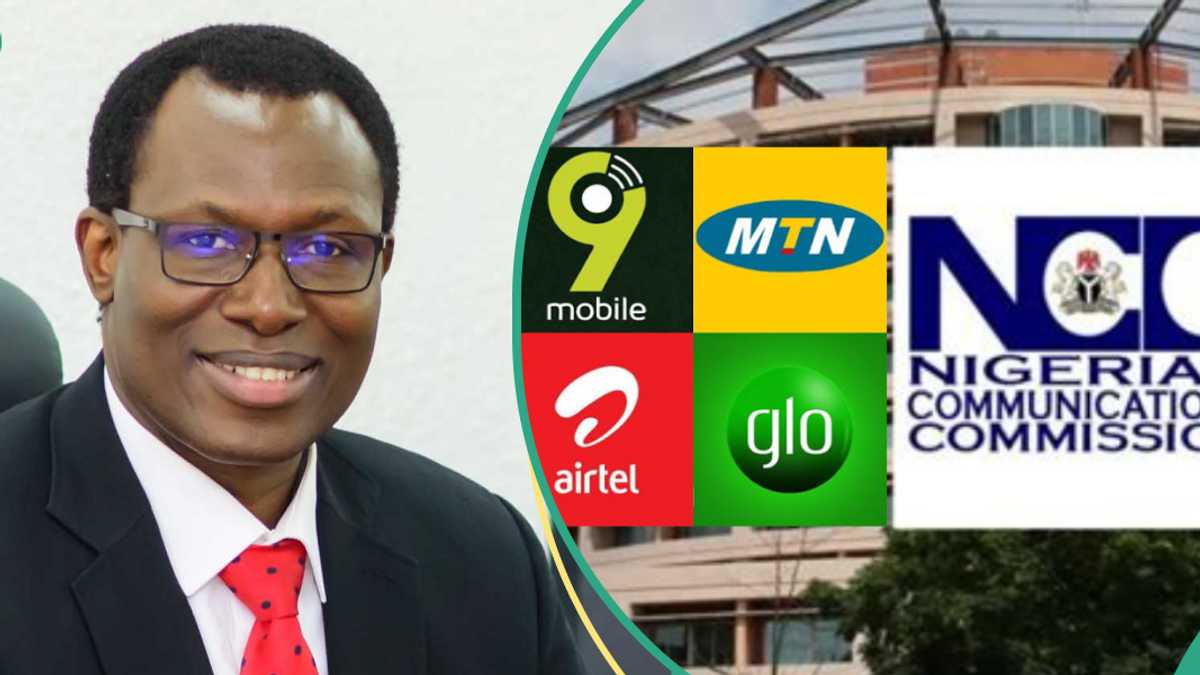Henzodaily.ng journalist Victor Enengedi has over a decade’s experience covering Energy, MSMEs, Technology, Banking and the Economy.
The Nigerian Communications Commission (NCC) recently approved a 50% hike in tariffs for telecom services, sparking debates across the country. This decision follows months of negotiations between telecom operators, regulators, and consumer rights groups.
While telecom companies argue that the increase is necessary for the stability of the sector, consumers and labour unions have raised concerns about the financial burden it will impose on Nigerians already struggling with rising inflation and economic hardships.
This move marks the first significant tariff adjustment in over a decade and has ignited widespread discussions on the implications for businesses and individuals who rely on telecom services.
7 key details to know about Telcos 50% tariff hike approved by NCC
Source: UGC
Here are the seven key things to know about this development:
1. Telcos requested for 100% hike in tariff
Telecom companies had initially proposed a 100% increase in tariffs, citing the rising cost of operations, foreign exchange volatility, and inflation as key reasons.

Read also
MTN sends message to subscribers on network fluctuations
According to industry sources, the telcos claimed that the cost of maintaining network infrastructure and acquiring necessary equipment had skyrocketed due to the depreciation of the naira.
However, after negotiations with the NCC, a compromise was reached, limiting the increase to 50% instead of the initially requested 100%.
2. Last tariff hike was in 2013
The last significant increase in telecom tariffs in Nigeria occurred in 2013. Since then, the telecom industry has experienced massive changes, including rapid technological advancements and increased demand for data services.
Telecom companies argue that despite these changes, their revenue streams have not grown proportionally due to regulatory restrictions on pricing, leading to financial strains on their operations.
3. Consumer associations threatened to sue Telcos, NCC
Consumer rights groups were quick to reject the proposed tariff hike, stating that it would disproportionately affect low-income earners who depend on telecom services for communication and business.

Read also
Telecom tariff hike: TUC threatens strike if FG does not take action
Some associations, including the National Association of Telecom Subscribers (NATCOMS), threatened legal action against the NCC and telecom operators if the tariff hike was implemented.
They argued that the increase would violate consumer rights and exacerbate economic hardships for millions of Nigerians.
4. NCC finally approved a 50% hike in tariff
After much deliberation, the NCC gave the green light for a 50% increase in telecom tariffs. The regulatory body stated that this decision was necessary to ensure the sustainability of the telecom industry and to allow operators to continue providing quality services.
The NCC also emphasized that the increase was approved after considering the economic realities facing both telecom operators and consumers.
5. Telcos insist hike is for stability, not profit
Telecom operators defended the tariff hike, insisting that the decision was not driven by profit motives but rather by the need to keep the industry afloat.

Read also
Nigerians to pay more for imported goods as NPA raises tariffs by 15% after 32 years
They pointed out that the sector has been struggling with rising operational costs, which, if not addressed, could lead to service disruptions and a decline in quality.
According to them, the price adjustment would help sustain their networks and ensure continued investments in infrastructure.
6. NLC threatens strike action
The Nigeria Labour Congress (NLC) has strongly opposed the tariff hike and has threatened to embark on a nationwide strike if the decision is not reversed.
The labour union argued that the increase would further strain the finances of ordinary Nigerians, many of whom are already grappling with economic difficulties.
The NLC has called on the federal government to intervene and prevent what it describes as an anti-people policy.
Pending the outcome of a committee review, the NLC agreed to hold off on any industrial action.
7. Telecos promise to improve services

Read also
LCCI advises Nigeria Customs Service to suspend newly introduced 4% customs charge on imports
In response to the backlash, telecom operators have assured Nigerians that the tariff hike will translate into improved services.
They have pledged to enhance network coverage, increase internet speeds, and reduce service disruptions.
In addition, some companies have hinted at investing in new technologies to make services more reliable and affordable in the long run.
Conclusion
The approval of a 50% telecom tariff hike by the NCC has stirred mixed reactions across Nigeria.
As the situation unfolds, Nigerians will be watching closely to see whether the promised service improvements materialize and how this decision impacts the overall economy.
PAY ATTENTION: Сheck out news that is picked exactly for YOU ➡️ find the “Recommended for you” block on the home page and enjoy!
Source: Henzodaily.ng
